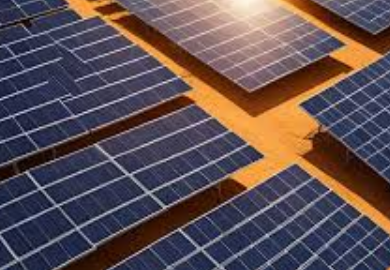US Detains $43 Million in Indian Solar Panel Shipments
In August 2024, the US Customs and Border Protection (CBP) detained shipments of solar panels from India valued at nearly $43 million. This action aligns with the Uyghur Forced Labour Prevention Act (UFLPA) enacted by the Biden Administration. The UFLPA aims to ban imports linked to forced labour, particularly from the Xinjiang Uyghur Autonomous Region (XUAR) in China. The CBP’s scrutiny focuses on the raw material, polycrystalline silicon, used in solar photovoltaic (PV) modules.
China’s Dominance in Solar Manufacturing
China has long dominated the global solar PV supply chain. It holds over 80% of the manufacturing stages for solar panels. This dominance raises concerns about forced labour in its supply chains, particularly in XUAR. The US’s increased scrutiny of Chinese companies has opened opportunities for India’s solar industry to position itself as an alternative.
India’s Solar Ambitions
The Government of India, through the Ministry of New and Renewable Energy (MNRE), claims that India achieved self-sufficiency in solar module production. In 2022-23 exported solar panels worth $1.03 billion. However, the country still lacks substantial capacity for solar cell production. The CBP’s actions highlight the strict enforcement of UFLPA, which examines even components of final products.
Trade Data Insights
According to the Global Trade Research Initiative, in fiscal year 2024 imported assembled PV cells worth $2.9 billion, making up 65.5% of such imports. Non-assembled cell imports were valued at $1 billion, accounting for 55.9%. These figures reflect India’s ongoing dependence on imported components, particularly from China.
Government Initiatives and Schemes
Post-COVID-19 accelerated efforts to achieve self-sufficiency in renewable energy. The government introduced a Production Linked Incentive (PLI) scheme for high-efficiency solar PV modules in 2021. This scheme has an outlay of Rs 24,000 crore and aims to build manufacturing capacity at a GW scale. Despite progress, many participating companies still rely on Chinese suppliers for components.
Budget Allocations and Future Plans
In the Union Budget 2024-25, the government allocated Rs 250 crore for the National Programme on Advanced Chemistry Cell Battery Storage. However, there is no specific allocation for a PLI scheme for solar PV modules under the MNRE. This raises questions about the commitment to reducing dependence on Chinese imports.
Challenges in Reducing Dependence on China
While scaling up domestic production is a strategic goal, firms face economic realities that compel them to engage with China’s supply chain. The Economic Survey indicates that complete detachment from China is not feasible in the short term.
India may consider negotiating sector-specific exemptions from UFLPA with the US, similar to the 123 Nuclear Agreement. This could facilitate smoother trade while maintaining compliance with US regulations.
About Chinese Domestic Politics
Indian companies often lack insight into the dynamics of Chinese domestic politics. Their dependence on foreign consultancies for information on China creates long-term challenges. A deeper understanding of the supply chain is essential for Indian firms.
The emphasis on export-led manufacturing, coupled with geopolitical challenges, necessitates that Indian companies stay informed about developments in China. This awareness is crucial for navigating the complexities of international trade and supply chains.
Month: Current Affairs - October, 2024
Category: International / World Current Affairs








